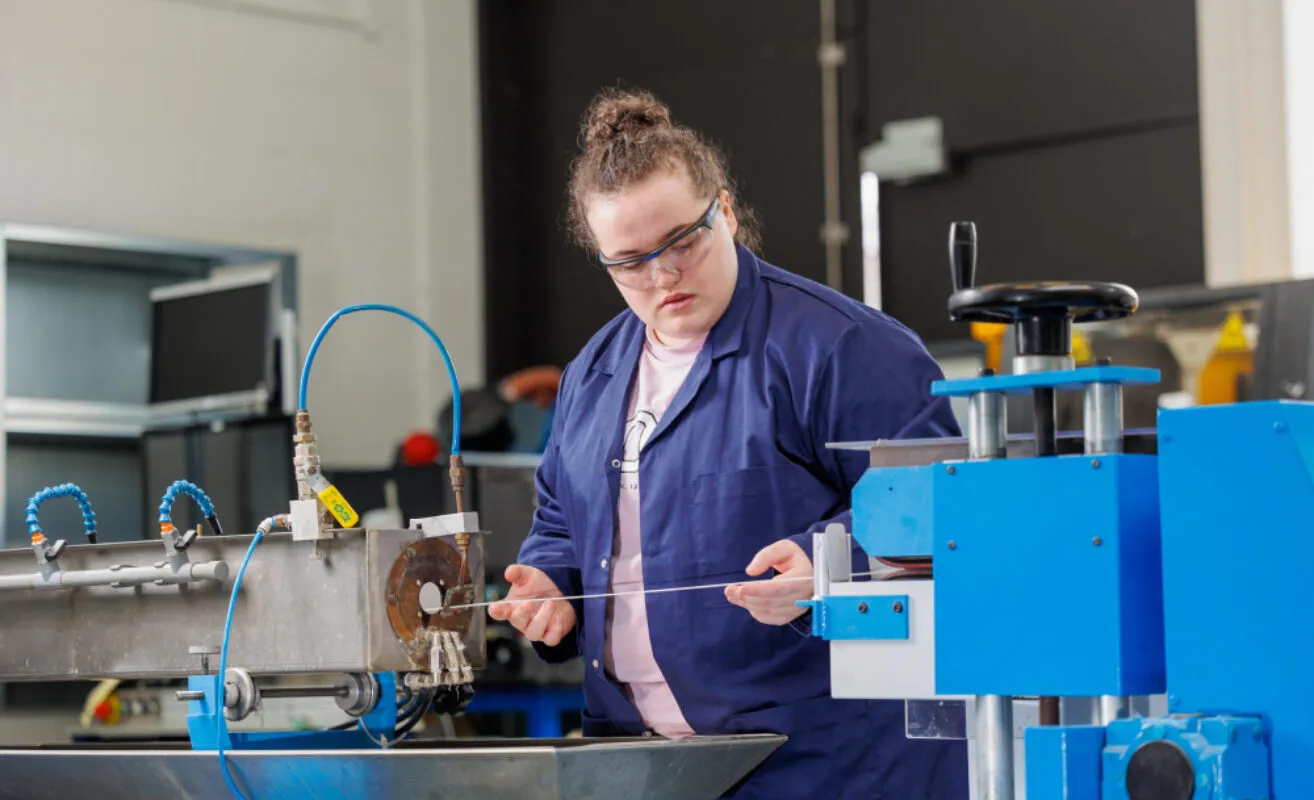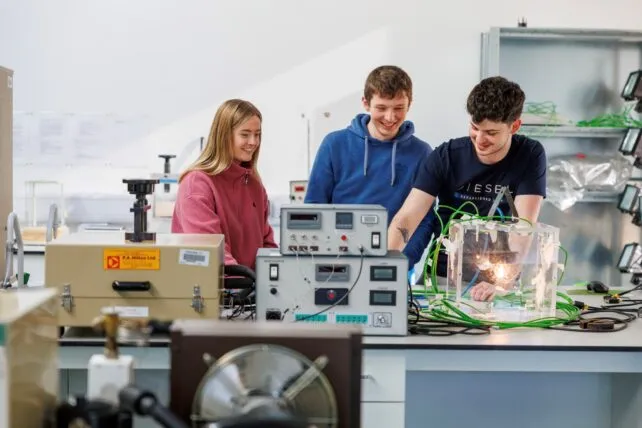What will I experience?
While studying on this course students will:
Our TUS Midlands campus offers highly practical engineering education. You will spend approximately half of your time honing your practical engineering skills in cutting-edge labs, and the remaining half will be devoted to engineering theory and its application. Our state-of-the-art engineering laboratories offer you the opportunity to work in small teams on projects and problem-solving to hone your communication and teamwork skills while gaining invaluable experience using top-of-the-line technical engineering equipment. Completing an industry-based project will also give you invaluable work experience, and through our research centres, you might even get the chance to collaborate with researchers on cutting-edge engineering projects. After completing the course, you will have gained the ability to evaluate polymer & mechanical engineering systems critically, spot possible improvement areas, implement corrective action, and, when necessary, propose and carry out an alternate solution.
What opportunities might it lead to?
Leading manufacturing companies, including Boston Scientific, Medtronic, Abbots, Athlone Extrusions, and Mergon, have stated in conversations that they require mechanical and polymer engineers with real-world experience. The manufacturing and supply chain businesses in the greater Midland area were consulted during the course’s design process by the TU, and they expressed support for its introduction. Furthermore, businesses engaged in research have determined that the skills taught in this course will be essential for the workforce of the future. Your specialized knowledge and abilities will open up established career opportunities in fields like:
- Polymer Engineering
- Mechanical Engineering
- Facilities Design and Management
- Manufacturing Process and Product Design
- Manufacturing and Automation
- Project Management
In recent years, all of the graduates of this programme have obtained 100% employment within 6 months of graduating, in a variety of companies both in Ireland and globally.



